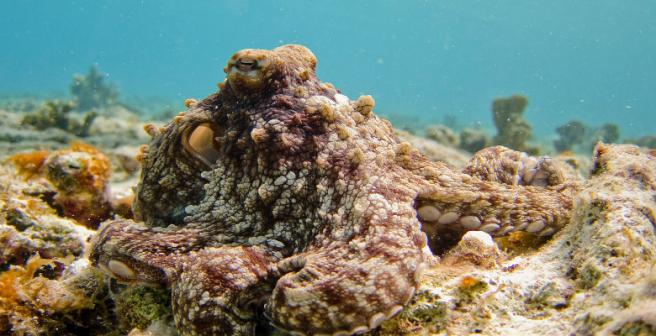Scientists discover why an octopus never gets entangled

Guy Levy, a neuroscientist at the Hebrew University of Jerusalem, and his team studied how an octopus avoids latching onto itself. They cut off an octopus’s arm and subjected it to a series of tests, and found that octopus arms have a built-in mechanism that prevents the suckers from grabbing octopus skin. This scheme allows the octopus to use its arms for behaviors like searching and grasping without having to compute where and when the limbs might touch each other, preventing entanglement. The animals also seemed able to differentiate between their own amputated arms and those of other octopuses. It is the first demonstration of a chemical self-recognition mechanism in motor control and could help scientists to build better bio-inspired soft robots.
Read more in Nature and Scientific American.


